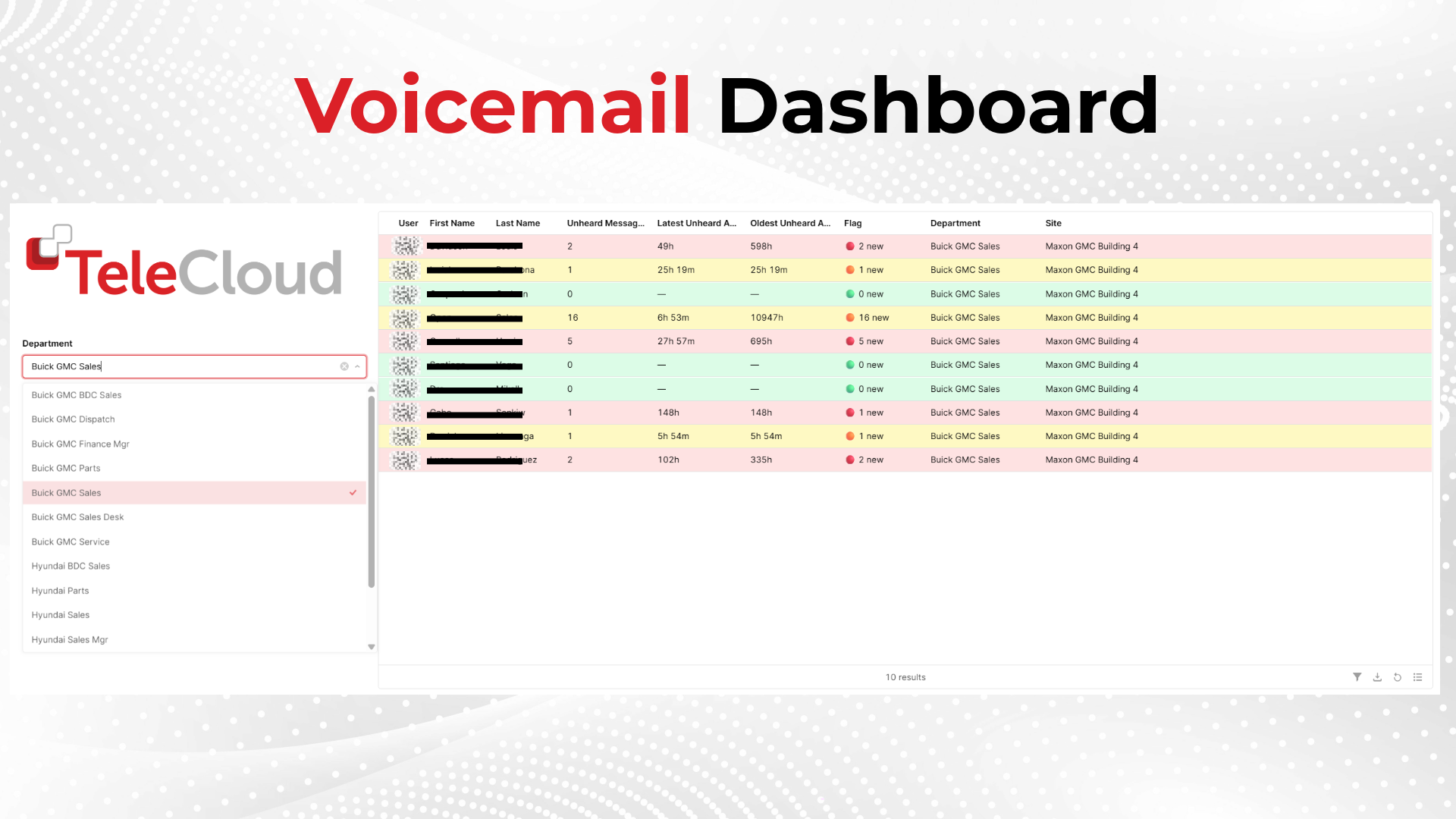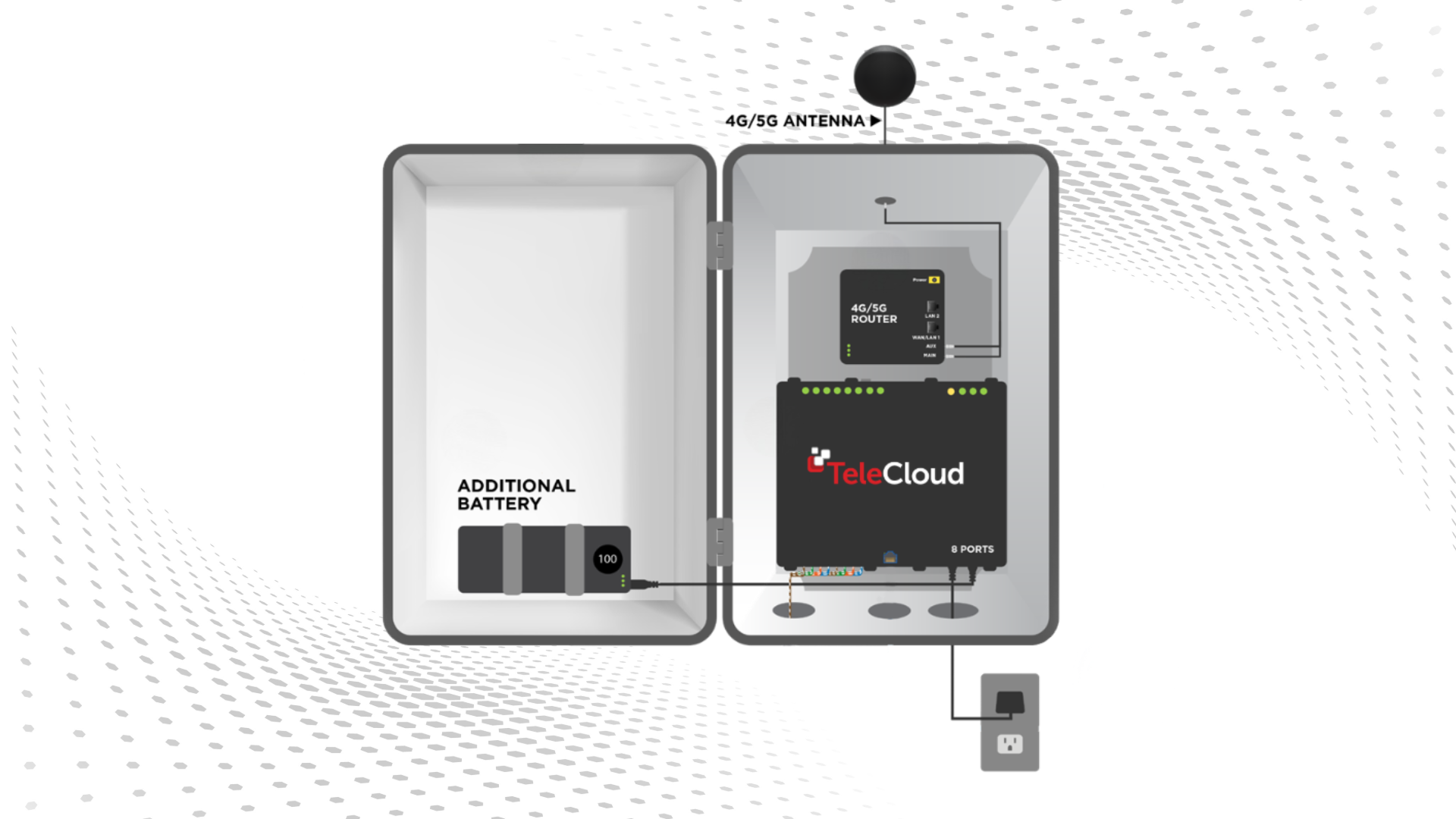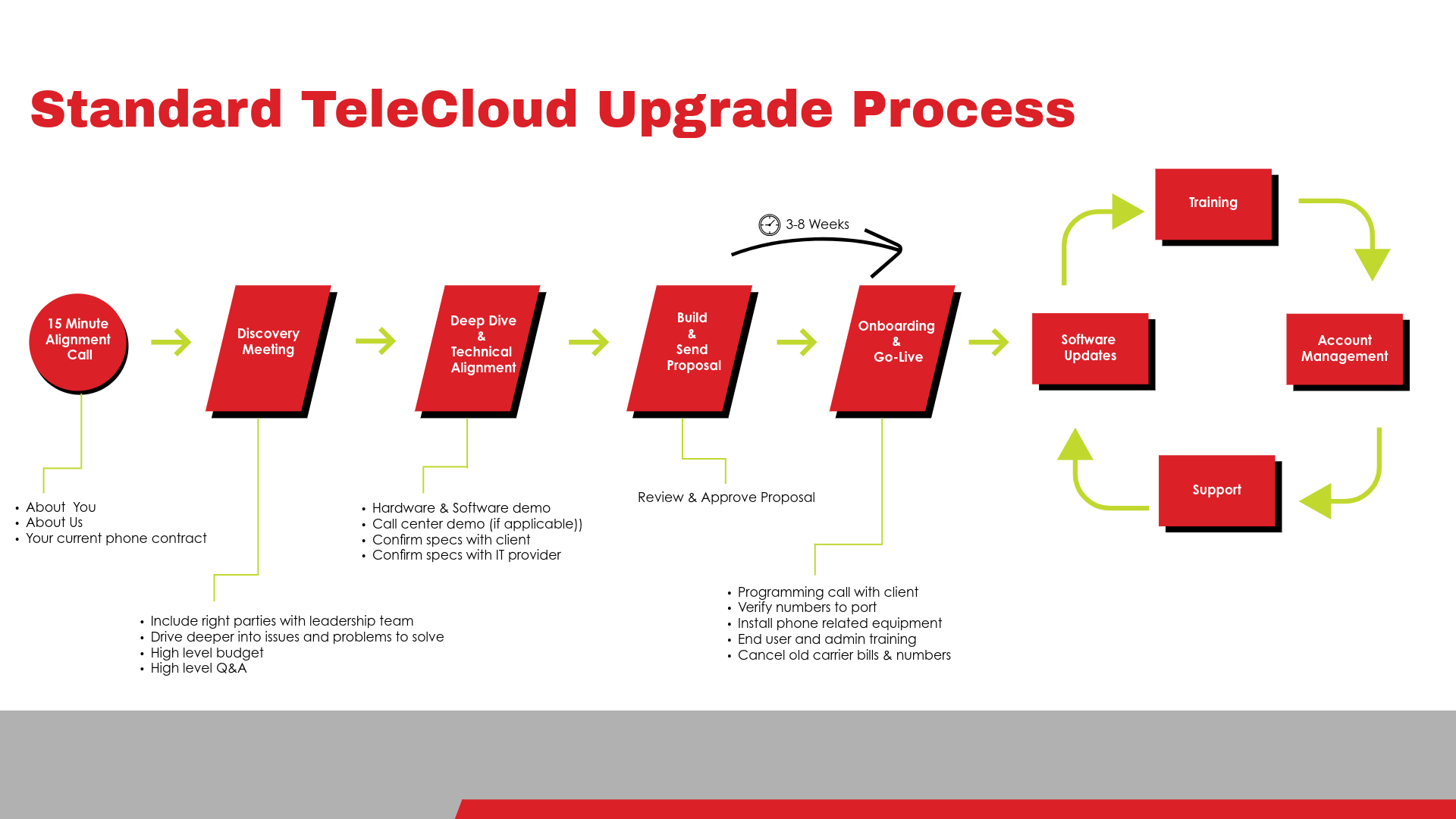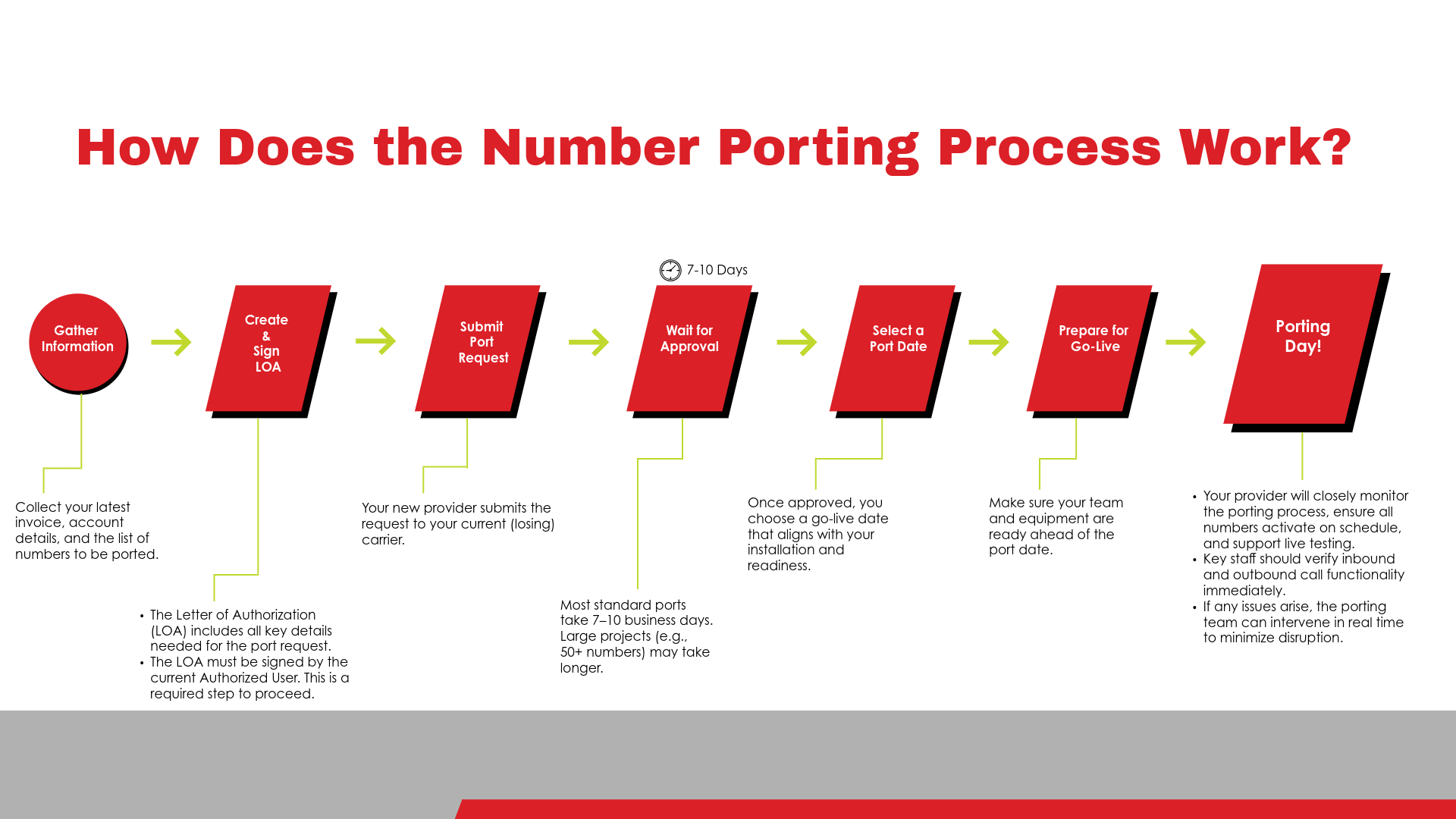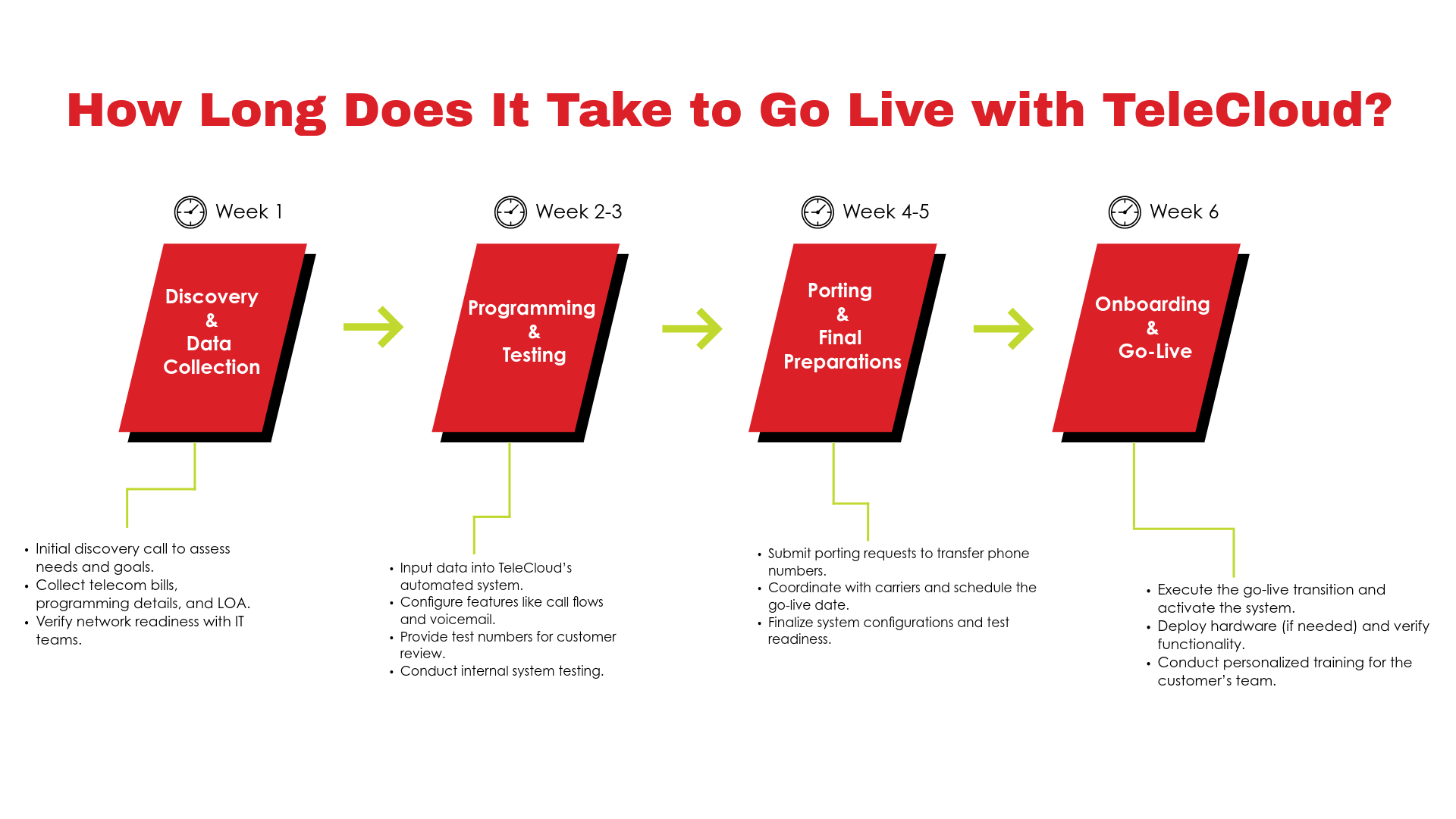The Six Most Common Concerns about VoIP Phone Systems Businesses Have
Updated: April 30th, 2025 | Published: March 15th, 2016
6 min read

Still feeling uneasy about switching your business to VoIP? You’re not alone and you’re not wrong to ask tough questions.
Despite the obvious benefits: lower monthly costs, better mobility, and modern calling features. Many business leaders hesitate to give up their traditional phone systems. Why? Because VoIP had a rocky start. Early versions struggled with reliability, and horror stories about poor quality and dropped calls left lasting impressions.
But here’s what we know after helping thousands of businesses make the switch over the past 20+ years: VoIP has matured and when it's done right, it's not only as good as analog systems, it's better.
At TeleCloud, we specialize in making sure “done right” actually happens. From call quality to porting to user training, we’ve seen every concern and solved them all.
In this guide, we’ll walk you through the most common fears about switching to VoIP and show you exactly how to overcome them. Whether you're worried about downtime, contracts, or change management, you’ll walk away with answers and a clear understanding of what to expect.
1. “I’m Stuck in a Contract With My Current Carrier.”
This is one of the most common (and frustrating) concerns we hear from businesses ready to upgrade their phone systems: “I’d love to switch, but we’re still under contract.”
Here’s the reality: you might not be as stuck as you think.
In many cases, companies don’t even know the details of their current agreement. Auto-renewal clauses, multi-year terms, and unclear cancellation processes are all tactics used by legacy telecom providers to keep you locked in longer than necessary.
What you can do:
Request your contract details.
You are legally entitled to a copy of your signed agreement. Ask your current provider for the contract expiration date, the cancellation terms, and whether there are any auto-renewal clauses.
Send written notice before your contract ends.
Even if you’re not 100% ready to switch, it’s wise to send a formal request (email is fine) to move to a month-to-month agreement once your term is up. This gives you flexibility and protects you from being auto-renewed without warning.
Evaluate the cost of leaving early.
If your contract still has a year left and your early termination fee is say $7,000, it might sound like a deal-breaker. But consider this:
- How much are you overpaying each month with your current provider?
- Are you missing key features that could improve business performance?
- Is your current system limiting mobility, remote work, or customer experience?
When you do the math, the cost to leave early can be offset by long-term VoIP savings and productivity gains.
Ask about a buyout.
Many modern VoIP providers (like TeleCloud) will buy out your contract—either partially or in full—if it makes financial sense for both sides. This is especially common with large systems or multi-site businesses.
Pro Tip: Before assuming you’re locked in, let an expert review your situation. We’ve helped many businesses exit restrictive contracts or negotiate more flexible terms, often without penalty. For more information read the full guide: Stuck in a VoIP Contract? Here’s How to Navigate Your Options
2. “Is VoIP Call Quality Really Reliable?”
Today? Absolutely, when it’s done right.
It’s true: in the early days of VoIP, call quality was hit or miss. Dropped calls, jittery audio, and lag were common, especially for businesses with limited bandwidth or outdated infrastructure.
But that was then.
Modern VoIP systems, when properly installed and supported, deliver HD-quality voice that’s often better than traditional landlines. Many businesses are surprised at how much clearer VoIP sounds, especially for remote or mobile teams.
If you’re experiencing call issues, the culprit is usually one of these:
- Unstable internet connection – Low bandwidth, high latency, or frequent drops will affect call quality.
- Outdated or underpowered network hardware – Routers, firewalls, and switches need to be VoIP-friendly.
- Shared cabling with computers – Running phones and PCs over the same line can create congestion and audio delays.
- Low-cost VoIP providers – Some cut corners by routing calls through cheaper international gateways, sacrificing quality for savings.
At TeleCloud, we perform a pre-installation on-site survey and network readiness assessment to catch and resolve these issues before they impact your users. If something needs an upgrade, we’ll walk you through the fix, no guessing, no finger-pointing.
Not convinced? Check out the full article: How Reliable Are VoIP Cloud Phone Systems? What You Need to Know
3. “What Happens If the Internet Goes Down?”
It’s a fair question and one we hear often. Since VoIP relies on internet connectivity, many businesses worry their phones will go silent if their connection drops.
But with the right setup, that doesn’t happen.
A properly designed VoIP system keeps your business reachable even during an internet outage, sometimes more reliably than traditional landlines.
Common backup solutions include:
- Automatic call forwarding: Instantly redirect calls to a mobile phone, backup line, or another office location.
- Dual internet connections: Use a secondary ISP as a failover for seamless redundancy.
- Mobile VoIP apps: Staff can make and receive business calls from their cell phones using LTE/5G—even if the office is offline.
Pro Tip: A VoIP system can actually improve your reliability if configured correctly. At TeleCloud, we help every client build a custom failover strategy that matches their setup, so you’re never caught off guard.
See the full guide here: What happens to the VoIP phone system at my business if the internet goes down?
4. “My Employees Hate Change.”
That’s completely valid. Most people don’t love learning new systems, especially when it impacts how they communicate with customers or coworkers.
The good news? Modern VoIP doesn’t feel like a big change when done right.
Here’s how we make the transition easier:
- Live training sessions – We offer personalized end-user training (on-site or virtual) to walk your team through every feature.
- Familiar hardware – Most VoIP desk phones look, sound, and operate just like the ones your team already uses.
- Hands-on support – Questions pop up. We answer them quickly, clearly, and with real people.
Bottom line: You don’t need your team to be tech experts. You just need the right partner to make the transition smooth, simple, and stress-free.
See how TeleCloud's training works: Training Your Team on a New VoIP System: It’s Easier Than You Think
5. “We Can’t Afford Downtime During the Switch.”
And you shouldn’t have to. A properly planned VoIP rollout should feel smooth, not stressful.
How we protect your uptime:
- Pre-scheduled number porting – We coordinate port dates in advance, and when the switch happens, it’s often a matter of minutes.
- New phones pre-configured – Your hardware arrives fully programmed and tested, so it’s plug-and-play on install day.
- Remote Call Forwarding (RCF) – If anything unexpected delays porting, calls can be automatically routed to your existing or mobile lines so business continues uninterrupted.
- System overlap – In critical cases, we run both systems in parallel during the switchover to ensure no gap in service.
Bonus: We’ll help separate voice from non-voice systems (like fire alarms, fax lines, credit card machines), so those stay functional and compliant during and after the move.
For the full explanation, checkout our installation guide: What Happens During a VoIP Installation? How We Minimize Downtime
6. “What If I Regret Switching?”
It’s a valid concern and one we take seriously.
VoIP isn’t about locking you in. In fact, it’s one of the most flexible communication technologies available.
Here’s why switching is low-risk:
- VoIP hardware is non-proprietary: You’re not stuck with “vendor-locked” equipment. If you ever part ways, your phones and network gear can usually be reused with another provider.
- We build the rollout around you: From the start, we conduct:
- A discovery consultation to understand your needs
- A full site and network survey
- A tailored installation and training plan
- Local project management and support to guide your team
Our goal isn’t to trap you, it’s to make you so happy, you’ll never want to switch again.
Bonus Concerns: Faxing, Alarms, and Analog Devices
Still using analog fax machines or traditional alarm systems? You’re not alone.
- Faxing: Most businesses today switch to WebFax (scan-to-email), which is faster, cheaper, and more secure.
- Alarms/Credit Card Lines: These are best kept on a single analog line or LTE solution, not VoIP. We’ll advise you case by case.
You Deserve a Modern Phone System That Works for You
If you're feeling hesitant about switching to VoIP, you're not alone and you're not wrong to be cautious. Your concerns are real. But here’s the truth: VoIP isn’t risky anymore. When it’s done right, it’s a smarter, more resilient way to run your business communications.
We’ve helped thousands of businesses make the move on their timeline, with zero guesswork and minimal disruption. We’ve seen what works, what doesn’t, and how to get it right the first time.
Whether you’re ready to switch or just weighing your options, we’ll walk you through it: no pressure, just straight answers.
Common VoIP Questions You Might Still Have
Will I lose control over call settings and routing?
Not at all. You can make changes yourself in our easy-to-use portal—or just call us, and we’ll take care of it for you.
Can VoIP handle our call center or high call volume?
Yes. VoIP systems like ours are built for advanced use—think call queues, analytics, recordings, dashboards, and more. Call Center Guide
Is VoIP secure enough for industries like healthcare or finance?
Absolutely. With encrypted calls, secure data centers, and HIPAA-aware practices, VoIP can meet strict security requirements. Read More
Will it integrate with our CRM or Microsoft Teams?
Yes. We support integrations with platforms like Salesforce, HubSpot, Zoho, Microsoft Teams, and others—just ask. Read More
What happens if the power goes out?
We route your calls to mobile numbers or alternate sites automatically. You can also add LTE or battery backups for extra peace of mind. Read More
 By Vincent Finaldi
By Vincent Finaldi
Vice-President, TeleCloud
E-mail: vin@telecloud.net | Direct Line: (908) 378-1218
What brings me satisfaction is meeting with New Jersey–based businesses and genuinely helping them solve communication and business problems. As someone who has lived in New Jersey my entire life, I love working and playing here. I live in Morristown with my wife, Lisa, and root for the New York Giants.
damon@telecloud.net
Topics:





